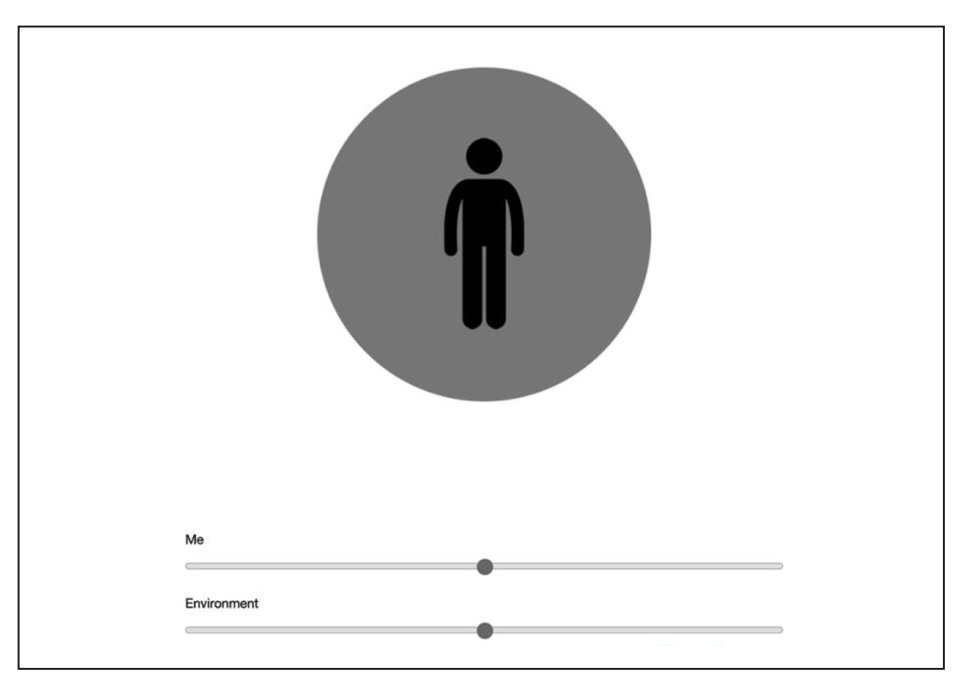Your Self Can Feel Small But Still Significant
The Wonderful Case of Awe
In the woods, we return to reason and faith. There I feel that nothing can befall me in life—no disgrace, no calamity (leaving me my eyes), which nature cannot repair. Standing on the bare ground— my head bathed by the blithe air and uplifted into infinite space—all mean egotism vanishes. I become a transparent eyeball; I am nothing; I see all; the currents of the Universal Being circulate through me; I am part or parcel of God. The name of the nearest friend sounds then foreign and accidental; to be brothers, to be acquaintances, master or servant, is then a trifle and a disturbance. I am the lover of uncontained and immortal beauty. —Emerson
In my book Transcend, I was fascinated by a seeming paradox. It seemed like the more people transcended their selves, the more they felt their self was psychologically healthy. This seemed in stark contrast to those with psychological conditions in which people report a complete loss of sense of self, and for these people that feeling is very scary. It seemed to me like an important distinction needed to be made between healthy self-loss and pathological self-loss. I explored this distinction in light of recent research at the time, but I am excited to see a new set of studies that tackle this issue head on.
Megan Edwards and a team of researchers (including the legendary positive psychologist Laura King) focused on the awe state of consciousness. The awe state arises when an encounter with something vast and incomprehensible dramatically expands a person’s frame of reference. There are many different triggers of awe, from spiritual contemplation to being moved by music to having a psychedelic experience to childbirth!
Awe has been linked to many positive mental and physical health outcomes. Maria Monroy and Dacher Keltner argue that the benefits of awe come from five processes: neurophysiological changes, prosociality, social integration, a sense of meaning, and self-diminishment. It’s that last one— self-diminishment— that Megan Edwards and her colleagues focused on, particularly with its linkage to a sense of significance.
Curiously, only a single prior study (that I am aware of) looked at the link between awe and significance. In that study, Yuwan Dai and colleagues found that awe reduced a sense of significance, suggesting that “awe is not a purely positive emotion”. However, Dai and colleagued measured significance with items that refer to the vastness of the universe (e.g. “Even considering how big the universe is I can say that my life matters”). They did not look at personal significance.
To help solve this puzzle, Edwards and colleagues conducted four rigorous studies in which they teased apart the metaphorical size of one’s self and subjective feelings of personal significance. They measured personal significance with items such as:
“My life is full of value.”
“My personal existence is significant.”
“Every day I experience the sense that life is worth living.”
“I feel like I could make a difference in the world.”
“I feel like I do matter.”
Across four studies they looked at the effect of an awe manipulation on both the metaphorical size of self and personal significance. For instance, in one study, they had people write about a past awe experience using a methodology that has been employed in a prior study on awe (fun fact: I am a co-author on that paper, and my friend David Yaden was the lead author):
Please take a few minutes to think about a particular time, fairly recently, when you felt intense awe. Now that you have chosen a SINGLE experience of intense awe, please describe your experience in about 2 full paragraphs in the box below. While you are writing, please focus as much as possible on the experience itself, rather than what led up to it, what happened afterwards, or your interpretation of the experience. Try to be as descriptive and specific as possible.
Then they had people select a visual representation of their self in comparison to the world and also fill out items relating to a feeling of personal significance.
What did they find? While awe did lead to a sense of self-diminishment across multiple studies, there was no evidence that awe leads to feelings of insignificance. In fact, in some situations awe led to an increase in a sense of significance (whereas a fear-induction led to decreases in both a sense of self and a sense of significance).
This is a huge finding, in my view! I really puzzled over this for years while I was writing Transcend, and think I finally get it. Self-transcendent states such as awe expand the self, but expansion doesn’t necessarily mean loss. It appears that awe both quiets the self and enhances the self. Awe allows us to connect more deeply to the world around us, increases prosocial motivations and behaviors, increases humility, and can even cause greater authentic self-pursuit and self-continuity— all at the same time. It seems like awe allows a greater level of integration than ordinary states of human consciousness.
Even though we are not as focused on our self when we’re in an awe state, self-transcendence does not rob the self of its importance or the sense that we matter. We just matter in a much more expansive and wonderful world than we ever realized.
p.s.: If you want to get into an awe state, you can take our Awe Experience Scale for free and relive an awe inspiring experience from your past.




i feel like when you're in awe, you see and understand that there is something bigger than yourself, maybe something that we don't understand. you get a sense of divinity that is around us
You‘ve tempted me to think about this…. But at the very beginning I know, we are a self among many selves, and just being a self is an ineffable gift of depth, breadth, and complexity, and add to this the whole of where we are. I kind of feel as if the gravity of self is the very definition of sin, but the obliteration of it as sought by so many is perhaps sin in a greater degree. I think of Buber‘s book, I and Thou, and it is a book that I love, but he doesn‘t obliterate the I, rather he asks us to see within thou the I that exists. And seeing it, whether it is another human or an oak tree we approach, we can enter into an I thou relationship. Is this transcendence? I believe it certainly is. Is it the obliteration of I? I think those who feel that to transcend I it must be the obliteration of I … well… I think they are so wrong I don‘t know where to begin.